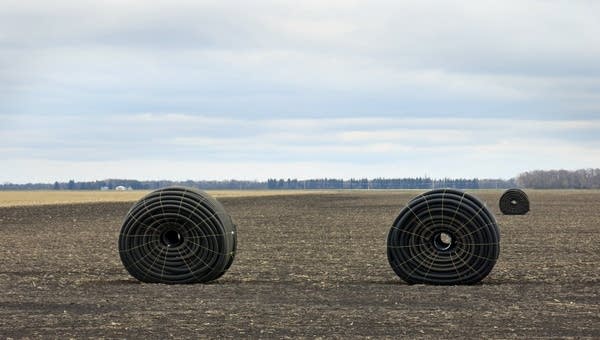Iowa water official: Farm nitrates should be regulated

Large rolls of drain tile sat in a field, April 21, 2015. Drain tile can make fields more productive, but a lawsuit contends that water emerging from the underground system of pipes is high in nitrates.
Dan Gunderson | MPR News
Go Deeper.
Create an account or log in to save stories.
Like this?
Thanks for liking this story! We have added it to a list of your favorite stories.


